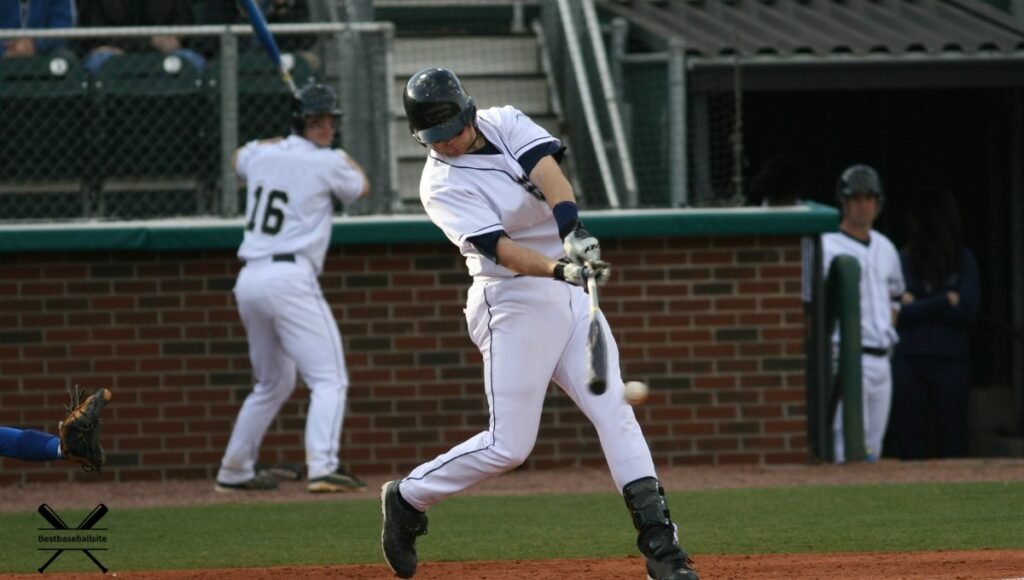When a baseball game is delayed, play is temporarily halted. The delay’s duration depends on the cause, such as weather conditions.
Engaging in America’s pastime often means dealing with unexpected interruptions. Baseball, a sport beholden to the elements, experiences game delays that can frustrate fans and players alike. Delays can occur for several reasons, with inclement weather being the most common culprit.
At the occurrence of a delay, umpires and officials pause the game to ensure player safety and maintain fairness in play. Stadiums fill with anticipation as everyone awaits the resolution, be it a brief intermission or a postponed match. Understanding this aspect of the game is crucial for optimizing the experience for those young fans eager to see their idols in action, or for the seasoned enthusiasts who’ve made watching these matches a beloved tradition. Thus, navigating these pauses requires patience and a flexibility that mirrors the unpredictable nature of the sport itself.

Credit: www.mlb.com
The Strike Zone Of Delays
Picture a packed stadium with fans eagerly awaiting the first pitch. But suddenly, the game hits a pause. What happens next? The “Strike Zone of Delays” refers to those critical moments when a baseball game grinds to a halt for various reasons. Understanding the impact of these halts is vital for players, coaches, and fans alike. Let’s explore the types and rules of delays to uncover the heartbeat of America’s pastime when time itself seems to stop.
Types Of Delays In Baseball
Baseball, much like life, is unpredictable. Delays can strike at any moment. Here’s a quick rundown of the most common interruptions fans might encounter:
- Weather Conditions: Rain, lightning, or even snow can stop play.
- Technical Troubles: Scoreboard glitches or lighting failures need fixing.
- Injuries: Player safety is paramount, and injuries require immediate attention.
- Crowd Interferences: When fans disrupt play, umpires must intervene.
The Rulebook On Delays
The rules are clear yet bend to accommodate unforeseen events:
- Suspension of Play: Under rule 3.10, the umpire-in-chief has the authority to halt the game.
- Resumption: The goal is always to resume play as quickly as safety allows.
- Postponements: If conditions do not improve, the game may be postponed to a later date.
Note that individual leagues may have additional rules for managing delays. Always check for specifics.
Clock Ticking On The Diamond
When it comes to baseball, unexpected delays can happen. Teams and fans watch the clock, hoping for quick resolutions. Whether it’s due to weather or other unforeseen events, these pauses in play create suspense in the stadium.
Determining Delay Duration
Umpires and team officials must assess the situation swiftly. They look at weather patterns and consult experts. Fans and players receive estimates on the wait time.
- Weather radar checks to predict storm movement
- Field inspections for safety
- Consultations with team leaders
Communication During Delays
Eager fans and players seek updates. Stadiums use various methods to keep everyone informed.
| Communication Channel | Description |
|---|---|
| Public Address Systems | Announcements to fans in the stands |
| Social Media | Real-time updates for the digital audience |
| Scoreboards | Visual alerts for attendees |
Team staff also remain in direct contact with players. They provide strategies to stay focused.
Behind The Scenes Action
When a baseball game faces a delay, the stadium buzzes with activity. While fans wait, teams behind the curtains swing into motion. Let’s peek behind the scenes to discover the hustle that keeps baseball alive, even during a pause.
Grounds Crew Hustle
As rain pours or lightning strikes, baseball games may pause, but not the grounds crew. Their work is crucial for player safety and game quality. Here’s what they do:
- Roll out the tarp: A massive tarp covers the infield, protecting the dirt and grass.
- Monitor weather: The crew keeps an eye on weather reports, ready to act.
- Drain water: Specialized equipment eliminates puddles when the rain stops.
- Field repairs: Even small breaks in the action are used for necessary touch-ups.
Players’ Routines Amid Interruption
Baseball players live by their routines. Delays can unsettle the rhythm. But professionals adapt:
- Stay loose: Players use the time for stretching to avoid injuries.
- Refocus: Mental preparation helps them keep their game-day edge.
- Nutrition: Some may eat snacks to maintain energy levels.
- Team meetings: Coaches might seize the moment for strategy talks.
The unexpected break tests a team’s flexibility but can also provide a valuable pause. Both the crew and players execute vital tasks to ensure the game’s return is seamless.
Broadcasters’ Dilemma
A baseball game delay often puts broadcasters in a tricky spot. They must keep viewers engaged and entertained even if the play stops. This can be both a challenge and an opportunity to deliver unique content. Here’s how they tackle it.
Filling The Air Time
With an unexpected pause in play, broadcasters jump into action. They turn to a mix of tactics to fill the air time. This may include:
- Interviews with players, coaches, or fans
- Highlight reels of past games or remarkable plays
- Expert analysis of the current game situation
- Interactive segments, such as trivia questions or fan polls
- Updates and discussions on other events in the world of sports
Engaging The At-home Audience
To keep the home audience hooked, broadcasters get creative. They incorporate:
- On-the-fly contests and giveaways that encourage viewer participation
- Use of social media to interact with viewers in real-time
- Live tweets and comments featured on the broadcast
- Engagement through second-screen apps designed for live sports events
Broadcasters maintain attention by making sure the at-home experience remains vibrant and interactive.
Fan Experience Under The Lights
There’s something magical about a baseball game under the lights. Fans gather, eagerly anticipating the first pitch and the crack of the bat. But when a game gets delayed, the stadium transforms. Let’s explore what happens during these unexpected breaks, and how fans can still find delight in a pause in play.
Stadium Activities During Delay
Stadiums come alive with a different energy when games are on hold. It’s a chance for fans to explore and take part in alternative entertainment.
- On-Screen Trivia – Fans test their baseball knowledge with questions flashing on the jumbo screen.
- Mascot Performances – Team mascots keep spirits high, interacting with fans and performing skits.
- Interactive Games – Attendees can play baseball-themed games, keeping the competitive spirit aflame.
- Eating Contests – Local foods take center stage as fans participate in lighthearted eating contests.
- Music and Dance-Offs – DJs keep the beats spinning as some fans show their moves on the dance cam.
Managing Spectator Disappointment
In moments of delay, managing fan expectations is crucial. Stadium staff work hard to ensure everyone maintains a good time, even without baseball.
- Informative Announcements – Clear, regular updates about the delay keep everyone in the loop.
- Special Offers – Concessions may offer discounts or special items to make the wait a little sweeter.
- Meeting Players – Sometimes players will sign autographs or interact with the fans, making the wait memorable.
- Comfort Measures – Additional staff may be brought in to help manage the crowd and ensure safety and comfort for all.

Credit: www.wjhl.com
Financial Curveballs
The game is set, fans are ready, but Mother Nature throws a financial curveball when a baseball game gets delayed. Rainouts or other delays not only dampen spirits but also ripple through the stadium’s finances. Let’s explore these unexpected costs that can hit hard.
Concessions And Merchandise Sales
A delay in a baseball game can lead to a literal ‘rain check’ on anticipated earnings from sales. Concession stands and merchandise booths often experience a sudden drop in sales. Fewer hot dogs and hats sold means less revenue.
- Vendors lose prime sales time.
- Perishable goods may go to waste.
- Merchandise tied to a specific game date may lose value.
The Cost Of Rescheduling
Rescheduling a game involves more than picking a new date. Additional costs come into play, often unseen by fans but felt deeply by the teams and staff. From field maintenance to staff pay, each postponed game requires a delicate financial dance.
| Aspect | Financial Impact |
|---|---|
| Stadium Staff | Overtime or extra shifts |
| Field Maintenance | Additional preparation and repairs |
| Marketing | New materials and advertising |
| Team Logistics | Travel and accommodation adjustments |
Resumption Or Cancellation Decisions
When a baseball game faces a delay, fans and players wait for the crucial call. Will the game resume or be cancelled? This decision can shift a season’s flow.
Weather Forecasts And Game Play
The fate of a delayed game often rests in the hands of weather experts. Teams and referees analyze forecasts closely. Safety for players and fans comes first.
- Light Rains: Games may continue with minor delays.
- Heavy Storms: A higher chance of rescheduling exists.
- Unclear Forecasts: Leads to longer waiting periods.
Impact On Season Schedules
Rescheduled games disrupt the season’s rhythm and complicate team logistics. Double-headers become frequent. Team fatigue can also become a factor.
| Possible Impact | Team Response |
|---|---|
| Additional Games | Roster rotations |
| Travel Changes | Logistical adjustments |
| Player Recovery | Enhanced training schedules |

Credit: www.krqe.com
Statistical Puzzles
The game of baseball, beloved by many, becomes a statistical maze when delays strike. Unexpected halts, like rain or technical issues, lead to intricate statistical puzzles. Numbers are vital to baseball’s heart. Imagine the scene: grey clouds blanket the sky, and the umpire signals a pause. The stoppage might last a mere half hour, or extend for hours. Either way, the stats must freeze and later thaw precisely. Fans, players, and managers all ponder: What happens to those all-important numbers during and after the interruption?
Recording Play Stats Pre And Post Delay
Each swing, pitch, and catch goes into a player’s statistical record. Play stats are a barometer of skill, and thus crucial. A timely delay can disrupt the rhythm. Let’s peek into recording stats before and after a game hits pause:
- Timestamps: Log exact stop and start times to note performance pre and post delay.
- Meticulous tracking: Monitor pitches, hits, and plays just before the pause
- Separate logs: Keep separate records to compare against post delay performance.
Adjusting Player Stats
Next, we tackle the conundrum of adjusting player stats after gameplay resumes. Math and fairness jostle for balance in this statistician’s task:
- Review game footage to confirm pre-delay stats.
- Update player data with new plays or strikeouts.
- Ensure statistical integrity with thorough cross-checks.
Each player’s overall performance can sway, impacted by unforeseen rest or stress. Statisticians work hard to provide accurate reflections for every athlete, regardless of game hiccups. Baseball’s story is told through its stats, and even delays have a part to play in that tale.
Psychological Play
Unpredictable weather, technical issues, or other unforeseen events can lead to game delays in baseball. Players and coaches often face a unique psychological challenge during these interruptions. Managing emotions and maintaining focus becomes crucial for ensuring peak performance once play resumes. This section explores the psychological dimensions of game delays for athletes and their coaches.
Athletes’ Mindset After Interruptions
A sudden game delay can disrupt an athlete’s rhythm and mental preparation. It’s essential for players to manage their thoughts and emotions efficiently. Focusing on simple, repeatable tasks can help players sustain concentration. Techniques like deep breathing, visualization, and positive self-talk are vital.
- Deep Breathing: Calms nerves and reduces anxiety.
- Visualization: Prepares the mind for different play scenarios.
- Positive Self-Talk: Builds confidence and wards off negative thoughts.
Coaching Strategies For Focus
Coaches play a pivotal role in helping athletes maintain a sharp focus during delays. Creating a structured environment can keep the team in a competitive mindset. Coaches might review game plans or hold impromptu team meetings to reinforce strategies.
Here are strategies coaches may use:
| Strategy | Purpose | Benefits |
|---|---|---|
| Mini-Training Sessions | Keep players warmed up | Ensures physical readiness |
| Mock Scenarios | Simulate game situations | Enhances mental preparedness |
| One-on-One Talks | Provide personalized attention | Boosts morale and focus |
Utilizing these strategies helps athletes redirect their energy and retain a mindset for competition.
Long-term Impacts
Long-Term Impacts of a delayed baseball game stretch beyond the immediate schedule disruptions. They can influence the team’s future performance, player health, and season dynamics. Understanding these impacts offers insight into the complexities behind the scenes of America’s favorite pastime.
Effects On Team Momentum
A game delay can act like hitting pause on a team’s energy. Team momentum, whether it’s the thrill of a winning streak or recovery from a rough patch, relies heavily on the rhythm of regular play. When unexpected delays occur, teams must work harder to maintain focus and drive. They might need to:
- Hold additional practices to stay sharp.
- Adjust game strategies to regain momentum.
- Manage player morale during the interruption.
Time-tested chemistry between players can also diminish, possibly altering the trajectory of the season. Delays can reset the playing field, giving all teams a chance to catch their breath, but potentially cooling off hot streaks.
Player Health And Injury Risks
Delaying games doesn’t just shuffle schedules; it also impacts player well-being. Players prepare their bodies for peak performance based on scheduled game times. Changes in warm-up routines can lead to:
| Risk Factor | Impact |
|---|---|
| Muscle cool-down | Higher injury risk |
| Longer recovery times | Reduced readiness for next game |
| Adaptation to weather conditions | Stress and strain on players |
Regular rest and recovery periods are key for avoiding injuries. Delays disrupt this balance, potentially leading to muscle strains or overuse injuries. Extra games or doubleheaders might be scheduled to make up for lost time, putting additional physical demands on athletes.
Frequently Asked Questions On What Happens When Baseball Game Is Delayed
What Happens If Mlb Game Is Delayed?
If an MLB game is delayed due to weather or other factors, play is temporarily suspended. The game will resume once conditions improve or be rescheduled for another date if necessary.
What Happens To Your Tickets When A Baseball Game Is Postponed?
Your tickets for a postponed baseball game typically remain valid for the rescheduled date. Check with the team’s policy for options if you can’t attend the new time.
How Long Before They Call A Baseball Game For Rain?
A baseball game may get called for rain after a delay, typically ranging from 30 minutes to an hour, depending on the league rules and the weather’s severity.
Conclusion
Dealing with a baseball game delay can be unpredictable. Whether caused by weather or unexpected events, fans and players must adapt. Remember, safety comes first, then the anticipation builds for the eventual play. Stay updated through official channels and enjoy the game, no matter when it resumes.
Keep your glove ready for the next pitch!


